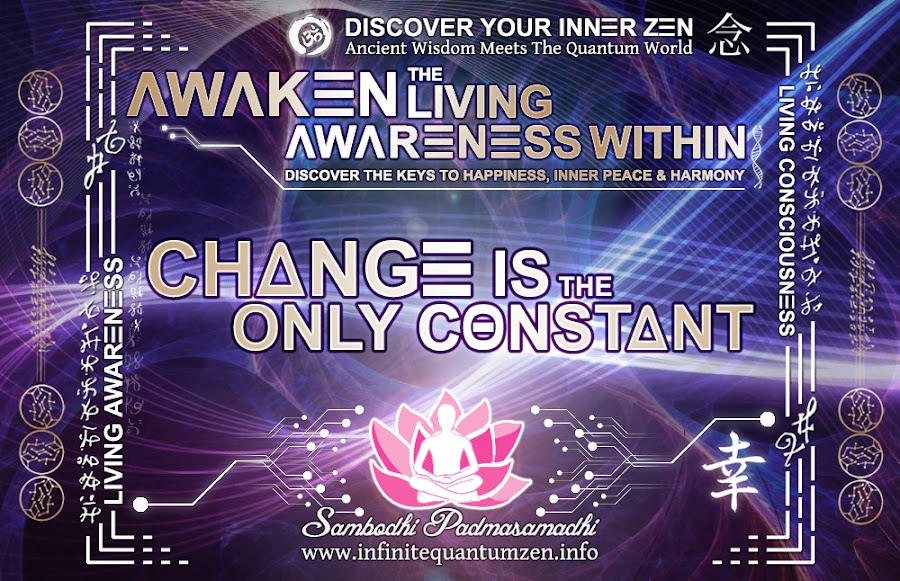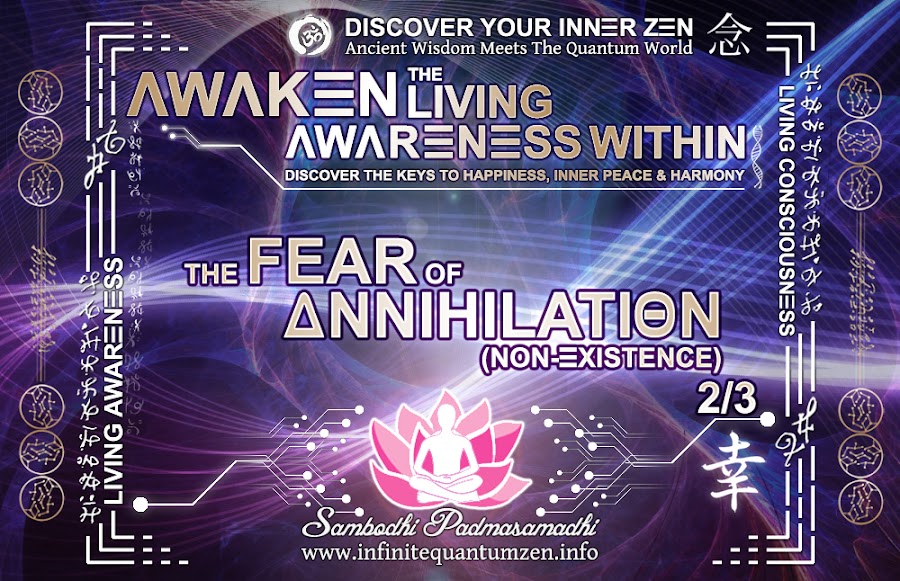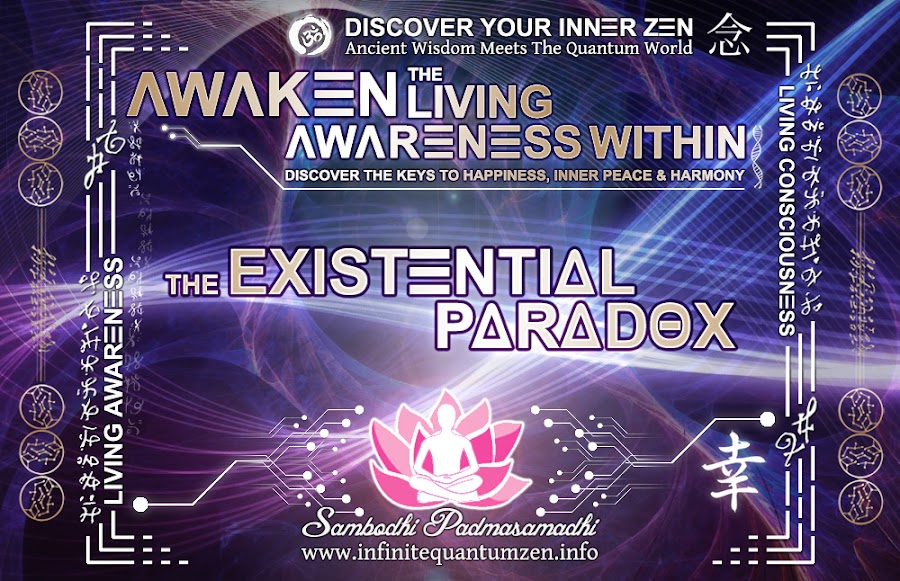 |
| ~ ∞ ~ The Fear of Annihilation (Non-Existence) ~ ∞ ~ |
One of the most unspoken truths in life is that from the very moment we are born – we start dying. And now, taking that into account, one might go on to say that in this respect, what we call life is not life at all – it is death. Indeed, we have a limited lifespan and healthspan – no matter how difficult it is to bear, this is how it is. Therefore, ultimately, it boils down to perspective on how one chooses to see it. You see, from this very moment onward – from the moment of birth, we have a choice: to grow, ripe and mature, or to wither, decay and perish.
It is no wonder, then, that when we observe the world around us, the comings and goings of people, their likes and dislikes, it doesn’t take too long to realize that people have always been fascinated by the mystery of death; and yet, at the same time, people are in a deep denial about their own mortality and suffering. The fascination toward death comes from its incredible contrast to life, but alas, the interest is shallow at best, and thus artificial in nature.
At some point in everyone’s life, there comes a time of reflection and introspection – this natural process leads each of us to the exact same place, where we find ourselves at the crossroads asking ourselves: What have I accomplished, and what legacy will I leave once I’m gone? Here, in this very place, we all start to question our own mortality. It’s in these moments that we find ourselves asking not only the questions relating to why, but also how.
Among such questions are: Why are we here? Where will we go, and how will we get there? Why do we exist? What does it mean to exist? Can existence become non-existence? What lies across the threshold between life and death? Yet, we have no consensus – this is because we as the collective human species have created ourselves social structures (civilization) that are ultimately an elaborate, symbolic defense mechanism against the knowledge of our mortality.
These structures of civilization include prevailing ideas, concepts, theories, narratives, assumptions, beliefs, perspectives, and values; it also includes worldviews, philosophies, theologies, ideologies, and even consensus reality – which, in and of itself, is the product of all the aforementioned. These together act as an emotional and intellectual response to our basic survival mechanism, resulting in that we humans seem to be living in a deep state of denial – most notably of our mortality and suffering.
It seems that death is a taboo that cannot be explored rationally – even though it is inevitable for all of us. In the Western culture, the acknowledgment of death is often reserved only to those who are directly facing the inevitable experience of death; for others, it is simply a form of entertainment (films, tv-series, games, novels, etc.)
Evidently, death is one of the most harshly pronounced and well-protected taboos that we have in current society – one is not supposed to talk about it, but one is supposed to show empathy and regret, and then move on to a different topic. But why exactly is that? Why does death frighten us so much that we don’t even find it appropriate to talk about it? Well, it goes without saying that the ubiquitous fear of death, the fear of one’s life to be finite, seems to push people towards avoidance with severe consequences.
As a result, in our Western culture, we have lost touch with the art of dying, not to say anything about the art of living. To be honest, in our culture, we don’t know how to die properly, but alas, yet we are doing so – dying slowly and gradually, continuously suffering on the way. Culturally, we don’t even have any constructive and beneficial ways of dealing with this wholeness.
The honest truth is that it would make everyone’s life much easier if we could only learn to deal with it properly. You see, by allowing the acknowledgement of death into awareness in a respectful, reflective and supported fashion may bear meaningful effects upon one’s life and experience. Bringing this awareness into conscious awareness influences our approach to life, the choices we make, and reminds us that it’s our individual responsibility to create the meaning we desire in our life.
By virtue of the aforementioned with regard to death being used as a form of entertainment, it should be pointed out that we are, indeed, exceedingly so, doing everything we possibly can – to avoid the confrontation with our own impending death. On the other hand, one might say that because the art of dying is almost completely missing from our culture, it is a coping mechanism of sorts.
But now the question becomes: Does it do any good for anyone, or does it do more harm than good? If violence, suffering and death, as they are portrayed in popular culture through various mediums – is a coping mechanism, then it is awfully bad one, would you agree? Now, let me ask you this: Isn’t it strange that we are taught to fear and hold off death of anything from the moment we are born?
As humans, one of the biggest, if not the greatest, fears relating to death seems not to be dying in itself, but rather the fear of the unknown: What lies across the threshold between life and death? Is there anything beyond that threshold, or nothing at all? Pure nothingness? Total annihilation? Does it all end after crossing that threshold?
Once again, this brings about the question: Why does death frighten us so much? Let us explore. Our fear of death springs from our ignorance of death, it springs from the thought that death is the end of everything, which is due to the “I-am-the-body” idea. Essentially, our fear of death springs from attachment to physical form, from attachment to physical body. Indeed, we are so attached to the kind of life we’re used to living that we cling to it as much as we can, to make sure it won’t flee from us.
In other words, our fear of death comes from the fear of ceasing to exist, losing one’s identity and foothold in the world we are familiar with. This, of course, has a huge impact in our lives, limiting our capability to enjoy life. In other words, most of the time, most of the people are so afraid of this natural part of life that eventually the fear of fear itself prevents them from living happy, joyful, and fulfilling life.
That said, it is not only important, but paramount to highlight the truth that spiritually wise individuals are not afraid of death, because their state of being is beyond body-consciousness, or just simply beyond space, time, and form. Since the spiritually wise individuals know that they are neither the body nor the mind, but rather Spirit that transcends the boundaries of material existence – the event of death has no effect on them.
When one understands that they cannot be destroyed, one becomes liberated from the fear – this is a great relief because after this realization, one can enjoy life and appreciate it in a whole new way. In other words, our true essence is established in the timeless consciousness, timeless awareness beyond mental limitations and conditioning, which means that the loss of this world of names, ideas, and forms don’t affect those who know deep down in their core that death does not mean non-being, or non-existence, nor total annihilation, you see?
In this context, one might say that the ultimate goal of man is to know God, and to know God is to know truth about Life – that it is indeed Eternal, and in turn one can become conscious of their continued existence, whether in the physical realm, the spiritual realm, or whatever stage of development one may be passing from physical life unto spiritual life, you see?















